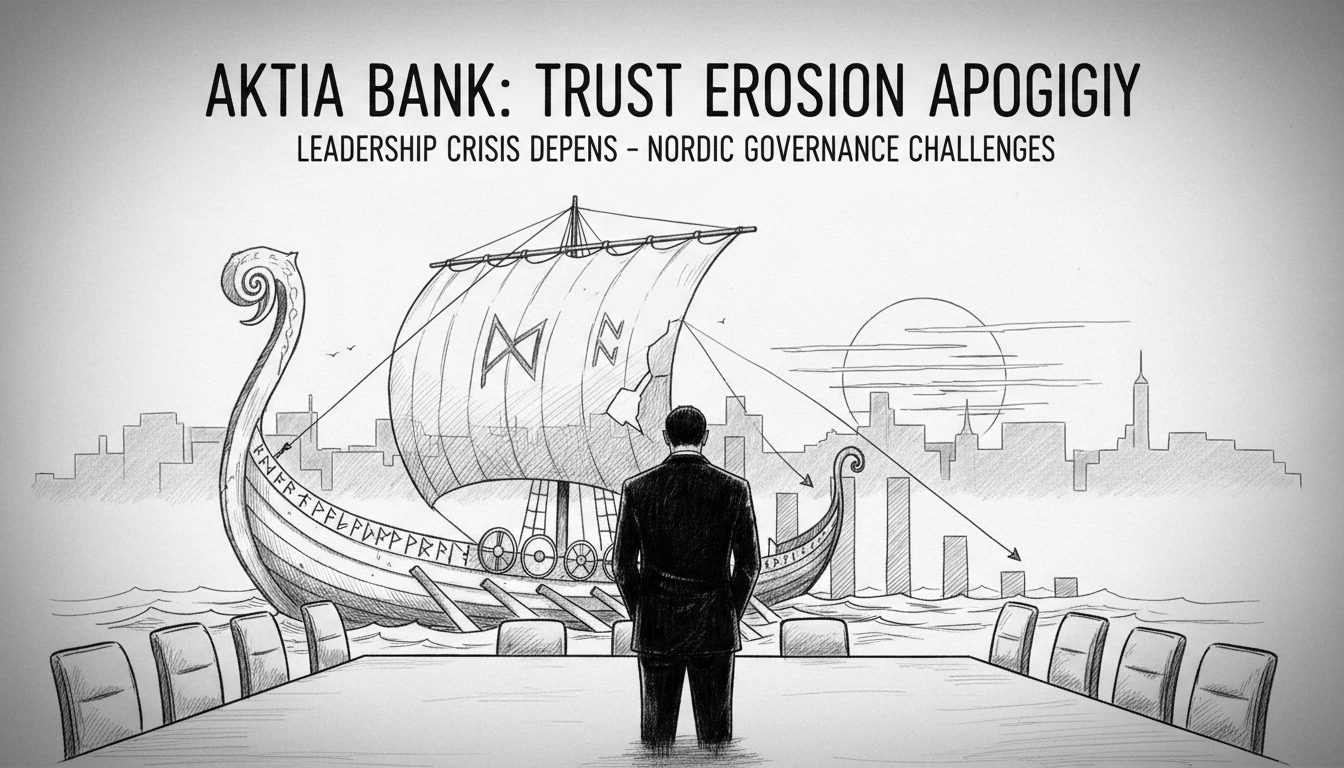Aktia Bank's new CEO Anssi Huhta has issued a public apology for the trust erosion following September's leadership scandal. He acknowledged the difficult situation during the bank's quarterly report presentation. The controversy emerged when the board fired CEO-designate Carl Haglund before he even started the role.
Huhta stated, 'I present my apologies first and foremost to our employees, customers, and shareholders. At the same time, I want to emphasize that Aktia's focus is always on business and customers.' The CEO expressed regret about the damaged confidence in Finland's financial institution.
Credit rating agencies responded to the turmoil by changing Aktia's outlook to negative. This development raises concerns about the bank's future borrowing costs and market position. The negative outlook typically signals potential rating downgrades if conditions don't improve.
Despite the leadership chaos, Huhta noted growing investor interest. 'We have gained more shareholders every month. Also, some long-term owners have significantly increased their ownership stakes.' Major shareholder Erkki Etola boosted his stake to nearly 20 percent, showing continued confidence from key investors.
Aktia's comparable operating profit for the third quarter reached 27.4 million euros. This represents a 13 percent decrease from the same period last year. The bank attributed the decline primarily to falling interest rates, which reduced the interest margin by six percentage points.
The Finnish banking sector faces challenges from ongoing real estate market uncertainty and weak employment conditions. Huhta remained positive about Aktia's performance given these market headwinds. 'In the current market situation, Aktia's business model demonstrates its strength and adaptability,' he commented.
Credit losses from real estate investments also contributed to the profit contraction. The Nordic property market has shown vulnerability to economic shifts, affecting multiple financial institutions across the region.
Looking ahead, Aktia expects this year's comparable operating profit to remain below last year's 124.5 million euros. The forecast reflects both market conditions and the impact of recent internal disruptions.
The leadership crisis highlights broader governance questions in Nordic banking. When a CEO-designate gets dismissed before starting, it inevitably raises concerns about board dynamics and decision-making processes. The situation underscores how quickly confidence can erode in financial institutions when leadership stability comes into question.
For international observers, this episode demonstrates that even established Nordic banks face corporate governance challenges. The region's reputation for stable banking doesn't make institutions immune to internal conflicts and their consequences.

